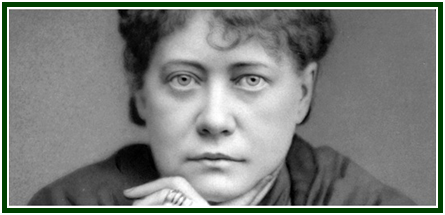A Selection From His Precepts On
Daily Life
Benjamin
Franklin

Benjamin Franklin, in a
portrait by Joseph-Siffred Duplessis
0000000000000000000000000000000000000000000000000000
An Editorial Note:
The life and
the writings of Benjamin Franklin
(1706-1790)
show signs of a
transcending inspiration. Many a theosophical idea
can be found in
his Autobiography. He made his own list of
“paramitas” or
positive qualities he wanted to develop, and tried
to improve his
personal nature through daily efforts. He also wrote
and collected
axioms expressing universal wisdom and ethics. The
following is a
selection from his “Poor Richard’s Almanack”.[1]
After each axiom,
the page number is added in parenthesis.
(Carlos Cardoso Aveline)
00000000000000000000000000000000000000000000000000000000000
1)
How few there are who have courage enough to
own their Faults, or resolution enough to mend them! (p.7)
2)
He that can compose himself, is wiser than he that composes books. (p.8)
3)
The worst wheel of the cart makes the most noise. (p.8)
4)
Well done is better than well said. (p.8)
5)
Who has deceived thee so often as thy self? (p.9)
6)
To err is human, to repent divine; to persist devilish. (p.10)
7)
Wise men learn by others’ harms; fools by their own. (p.11)
8) Declaiming against
Pride, is not always a Sign of Humility. (p.11)
9)
Keep conscience clear, then never fear. (p.11)
10) Great Good-nature,
without Prudence, is a great Misfortune. (p.11)
11)
Doing an Injury puts you below your Enemy; Revenging one makes you even with
him; Forgiving it sets you above him. (p.11)
12)
He that would live in peace and at ease, must not speak all he knows, nor judge
all he sees. (p.12)
13) Avarice and happiness
never saw each other, how then should they become acquainted. (p. 13)
14) Be slow in choosing a
friend, slower in changing. (p.13)
15) Ah simple Man! When a
boy two precious jewels were given thee, Time and good Advice; one thou hast
lost, the other thrown away. (p.14)
16) When Knaves fall out,
honest men get their goods: when priests dispute, we come at the Truth. (p.14)
17) Experience keeps a dear
[i.e. expensive] school; yet Fools will learn in no other. (p.14)
18) How many observe
Christ’s Birth-day; How few his Precepts! Oh! It is easier to keep Holidays
than Commandments. (p.14)
19) Who is rich? He that
rejoices in his Portion. (p.14)
20) An open foe may prove a
curse; but a pretended friend is worse. (p.15)
21) It is easy to see, hard
to foresee. (p.16)
22) Have you something to
do tomorrow, do it today. (p.17)
23) Speak and speed: the
close mouth catches no flies. (p.17)
24) What you would seem to
be, be really. (p.18)
25) Make haste slowly.
(p.18)
26) Thirst after desert [i.e., merit] - not reward. (p.20)
27) Tricks and treachery
are the practice of fools that have not wit enough to be honest. (p.20)
28) There are lazy minds as
well as lazy bodies. (p.20)
29) Observe all men;
thyself most. (p.20)
30) Wish not so much to
live long, as to live well. (p.21)
31) There’s none deceived
but he that trusts. (p.21)
32) None but the well-bred
man knows how to confess a fault, or acknowledge himself in an error. (p.21)
33) Wink at small faults - remember thou hast
great ones. (p.21)
34) Each year one vicious
habit rooted out, in time it might make the worst man good throughout. (p.21)
35) Who’s strong? He that
can conquer his bad habits. (p.23)
36) Tomorrow I’ll reform, the fool does say; Today itself is too late;
- the wise did it yesterday. (p.23)
37) Fear to do ill, and you
need fear nought else. (p.24)
38) Seek Virtue, and of
that possessed, to Providence resign the rest. (p.25)
39) Content makes poor men
rich; Discontent makes rich Men poor. (p.26)
40) What signifies knowing
the Names, if you know not the Natures of things? (p.27)
41) If evils come not, then
our fears are vain; and if they do, fear but augments the pain. (p.28)
42) There are three things
extremely hard: Steel, a Diamond and to know oneself. (p.28)
43) Sin is not hurtful because
it is forbidden, but it is forbidden because it is hurtful. (p.29)
44) Nor is a duty
beneficial because it is commanded, but it is commanded because it is
beneficial. (p.29)
NOTE:
[1] See the volume “Poor Richard’s Almanack”, a selection
of the “choicest Morsels of WIT and WISDOM, written during the Years of the Almanack’s
publication by that well-known Savant, dr. BENJAMIN FRANKLIN of Philadelphia”.
Published in Mount Vernon, at the sign of THE PETER PAUPER PRESS. No date
indicated. USA, 77 pages.
000
The above article was published on the websites of the Independent Lodge of Theosophists in February 2017. The main study and research, however, occurred in Brazil during the 1980s and 1990s.
000
Read more:

* Some writings by Jean des Vignes Rouges.
* How to Build a Theosophical Lodge (by a Master of the Wisdom).
000
Print the texts you study from the websites of the Independent Lodge. Reading on paper helps us attain a deeper view of philosophical texts. When studying a printed text, the reader can underline sentences and make handwritten comments in the margins that link the ideas to his personal reality.
000

Helena Blavatsky (photo) wrote these words: “Deserve, then desire”.
000
